I don’t mean BETTER. That’s a different conversation. I mean cooler.
An old CRT display was literally a small scale particle accelerator, firing angry electron beams at light speed towards the viewers, bent by an electromagnet that alternates at an ultra high frequency, stopped by a rounded rectangle of glowing phosphors.
If a CRT goes bad it can actually make people sick.
That’s just. Conceptually a lot COOLER than a modern LED panel, which really is just a bajillion very tiny lightbulbs.
Pneumatic tubes were way, way cooler than email.
Of course, you could only use them to send a message to someone in the same office building, so the comparison isn’t perfect… but you know what I mean.
I’m not crazy old, but I’m old enough that the supermarket I went to as a kid had these at all the checkout aisles and the cashiers would use them to send cheques/reciepts/ whatever.
It was awesome to see.
They still use them today in some supermarkets, now they use them to send packets of cigarettes through the store.
That’s actually a pretty good use. In my local market they send the person to a separate counter.
Very cool, I’ve never seen the ones that can send a person. Can they breathe in transit?
It’s pneumatic, not vacuum. Geez.
Making it dangerous to smoke while in transit. I see why the people ones didn’t catch on in the 50s.
Okay, maybe my town is just not up to date, but these are still in use at all the banks and pharmacies where I live. Are they phased elsewhere?
I haven’t seen one in years, but the fact that they’re all used is awesome.
The Kroger pharmacy here replaced their awesome pneumatic tube with a boring sliding drawer.
They are used in some hospitals in central Europe
In the Netherlands I see them in nearly every big hospital. I think for sending blood samples to the lab quickly. (Possibly among other things)
Some downtown big cities had the buildings interconnected.
Prague had a large pneumatic post system which operated for 100+ years.
I had no idea there were systems that spanned entire cities! Thanks for the link!
Roosevelt Island in New York City uses pneumatic tubes for trash collection!
Ironically, it actually sucks less than the famously terrible way the rest of the city does it.
Cool. Thanks for the link!
Big hospitals still have them to send medications and random lightweight stuff around the complex. My wife has worked in two large hospitals that had pretty extensive tube systems, used especially with pharmacy.
Tom Scott does a youtube video about one in Canada (IIRC) where they send radioactive medicine from the lab a down the road to a hospital due to the half life of the medication making traditional transport (ie vehicles) impractical.
Edit: bothered to look it up
I know of a hospital where the local university sends tracers with F-18 for PET scans in much the same way. Half-life of 110 minutes.
My Walmart has them for a pharmacy drive thru.
The two major hospitals, relatively near me, use a combination of tubes, and robots, to dispense medications. One is working on completely robotic food service, and has completely robotic floor cleaning/polishing. Both, also, have robots that do the basic landscaping maintenance, like mowing/edging. There is more, it is interesting to walk around and see all these infrastructure systems work. Feels, at least partially, like the promised future of sci-fi.
Hate someone in the office? Pour hot coffee into the container and send it to your victim.
Before ATMs, bank drive-throughs (the ones with multiple lanes for cars) had pneumatic tubes to send cash and checks to the bank teller, or receive cash.
Some probably still do. I feel like I used one within the past 10 years.
They’re still in use at most banks where I live. Most hospitals use them too; way faster than dumbwaiters
I remember those! I wouldn’t be surprised if they’re still in use. I’ve never used the drive-through lane at my bank. I can deposit checks online by taking a picture of it (which still seems weird to me), and I use the ATM for everything else.
The factory i work at occasionally still uses them for delivering tests to the lab, pretty cool to hear them swish around in the pipes.
I like the look of vacuum-fluorescent displays (VFDs) – a high-contrast display with a black background, solid color areas. Enough brightness to cause some haloing spilling over into the blackness if you were looking at it. Led to a particular design style adapted to the technology, was very “high-tech” in maybe the 1980s.
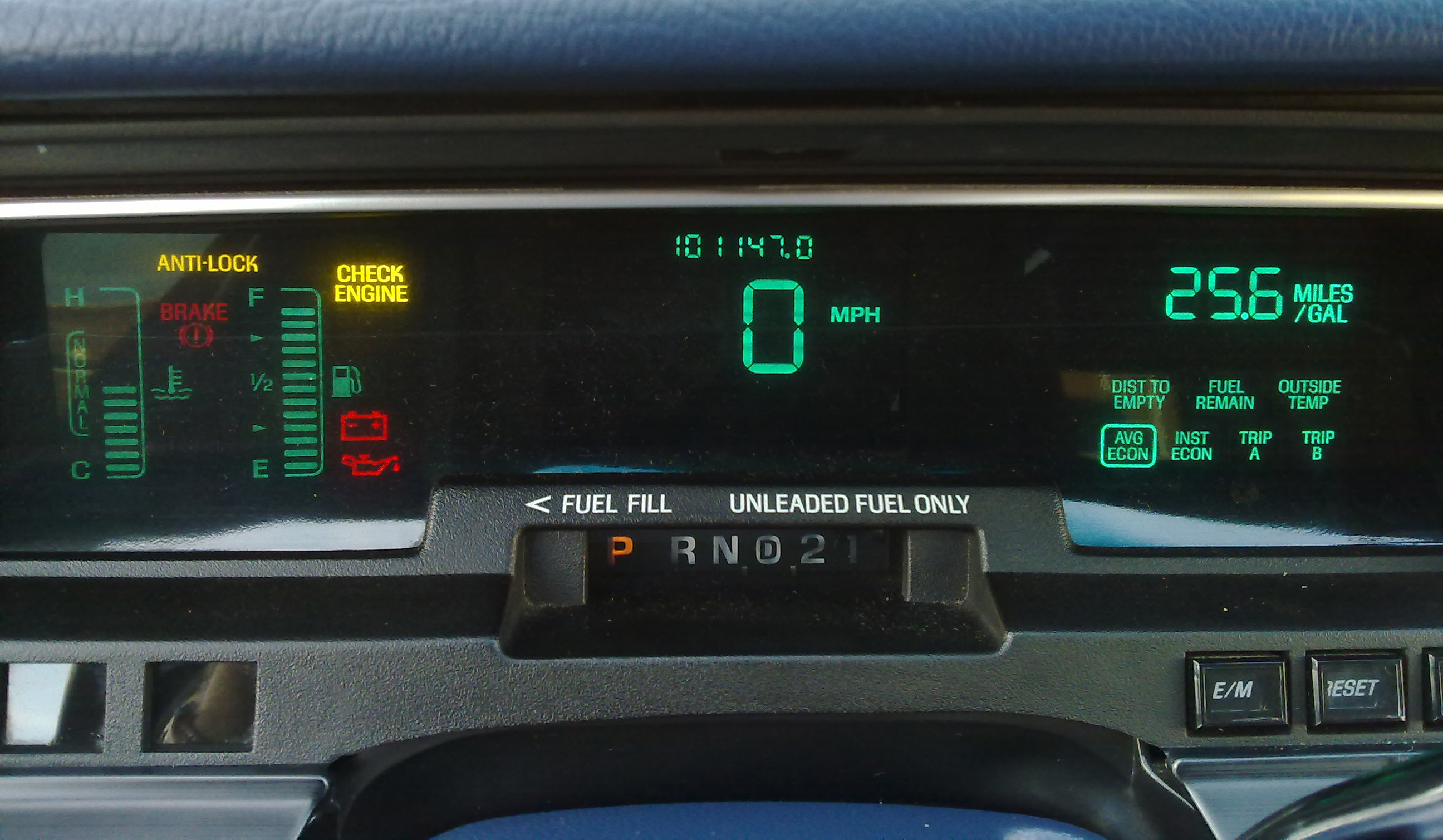
OLEDs have high contrast, and I suppose you could probably replicate the look, but I doubt that the style will come back.
https://en.wikipedia.org/wiki/Vacuum_fluorescent_display
EDIT: A few more car dashboards using similar style:
https://s3.amazonaws.com/skillshare/uploads/session/tmp/50c99738
https://www.pinterest.com/hudsandguis/retro-car-dashboards/
And some concept cars with similar dash:
https://www.hudsandguis.com/home/2022/retro-digital-dashboards
Some other devices using VFDs:
My kid’s car is like this. I’ve been calling it retro-futuristic, which I think is a pretty apt description.
Oh what kind of car? I’d love for this style to come back for a bit.
Suzuki Aerio SX. I can’t find a picture that shows the whole dash, but here’s part of it:
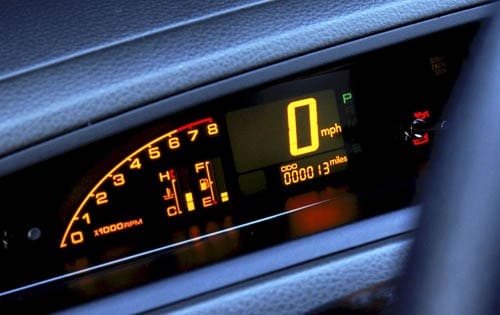
Many receivers and amplifiers still have VFDs to this day. I still wonder why, LCD has to be significantly cheaper.
They look cool as hell though, so I appreciate that they go the extra step.
As someone who also likes VFDs, I’ve fully expected that they’d be extinct in new products by now thanks to cheap LCDs and OLED. But I find it awesome that they’re still hanging in there.
Newer, but I quite like the gentle amber LCD (not LED) displays of my car. At night it’s bright enough and sharp enough without being visually loud. I wish more of these displays were still being made, I’d love to use them in car-centric Arduino projects and data displays that would be consulted at night or that sort of thing.
I always ask my friends “How the fuck do you live like this?” when I hop into a car and the music UI is a garish color searing itself into my retinas permanently.
Thankfully, advertising companies have identified this marginal comfort I find in the warm interior lighting of my car and have proceeded to mount insultingly blinding screens all over the city.
The city being the midrise urban sprawl north of Beirut. What do you mean regulations on brightness habibi? You think you live in Paris? Imagine this: half the street is unlit because the power is out, but the advertising company’s invasive bullshit budget™ has enough foreign cash to burn to keep generators running all night for these shitty ads. Gotta beam an extra few kilowatts of photons straight into this sleepy driver’s eyeballs while they operate a motor vehicle, on a highway that a lot of people cross by foot. There’s a special on fish at the fancy supermarket, how will I live without that knowledge?
Thankfully, the “state” of Israel has identified that the civilian structures of Lebanon mildly inconvenienced me, and has proceeded toNewer, but I quite like the gentle amber LCD (not LED) displays of my car. At night it’s bright enough and sharp enough without being visually loud. I wish more of these displays were still being made, I’d love to use them in car-centric Arduino projects and data displays that would be consulted at night or that sort of thing.
Not sure if you mean VFDs or amber LCDs, but Matrix Orbital sells both sorts in small quantities that you’d use in a project and can interface to a microcontroller – I was interested in them myself when looking for small VFDs, years back. They’re going to be segmented alphanumeric or grid displays, though, not things with physical custom display elements like those car dash things, but that’s kinda part and parcel of small-run stuff.
https://www.matrixorbital.com/
https://www.matrixorbital.com/blc2021
Just choose the “amber” option if it’s an amber LCD you want.
Can also get their displays via Mouser or Digikey.
That’s exactly the kind of display I’m talking about. Nice to see they’re still around.
The ones I have are all just grids, higher resolution than these but still comfortingly blocky. I’ve actually replaced the dash display recently since the original one got deep fried under the sun and lost all contrast when the weather was above 20°C.
Ah, good to hear it. They do (or did, and I assume still do) also have higher res displays.
Going back to an earlier bit in the conversation, where you were concerned about light sources in the car, I think that auto-dimming might also help (not just with VFDs, but the brightness of any in-car display). My car dash has the option to automatically set brightness based on ambient light levels (something that I wish my desktop computer monitor could do…part of “dark mode”'s benefit is a mitigation for devices that don’t do this). I don’t know if that was a thing back in the 1980s or so, when these display designs were popular.
I also kind of wonder if eye-tracking, which has come a long way, could be made reliable-enough and responsive-enough to toggle off displays if the car can detect that a user is looking somewhere away from them. Maybe be conservative, not with some critical displays, but stuff like the radio or clock or something. Eye tracking systems normally use the near-infrared, as I understand it, not visible light, so I’d think that you could theoretically do it in a darkened car without problems.
All of the car’s interior lighting (all in amber) does dim automatically when I drive under a bridge or into a tunnel, and automatically dims when I turn on the headlights. So some rudimentary dimming was implemented in 2000 when it was made. No clue where the sensor is though.
VFDs are the shit!
As a kid, I had this tabletop video game called “Dracula” that featured a multicolor VFD display. I loved that game.

Cars used to be cool. Every car company had some kind of sporty car, a couple cheap cars, a big luxury sedan and, a while ago, a station wagon.
Now every car is an SUV or CUV. Sedans are getting phased out. Cool sports cars don’t make money so they don’t make them. People don’t buy station wagons so they don’t make them. And they’re pushing big, angry trucks on everyone.
Disney lost their old camera tech used to make a “yellow screen” with sodium vapor lights.
It’s actually better than a green screen because the yellow light is so specific that even if you remove that particular frequency of light, everything else still looks fine. You can do all sorts of things that would normally be very difficult to pull off with any of our green screen tech (like drinking water in a clear bottle or wearing a rainbow dress).
This was a really cool video!
Considering LEDs are so good at producing a very tight wavelength, I wonder if this could be replicated with more energy efficient lamps.
Or if non visible spectrum lights can be used to make similar alpha channel masks that don’t affect lighting the scene.
A laser, maybe, but definitely not LEDs. Vapor/gas lamps produce the narrowest frequency bands possible, because it comes from very well defined atomic transitions (Hz range). LEDs produce frequency bands with widths in the GHz/THz range, while semiconductor lasers can maybe reach KHz if they are really good. So, unfortunately, for this type of applications, vapor lamps would probably still be needed.
Source: I work with lasers and spectroscopy.
Edit: very good idea about using non-visible light!
Is there some filter that you could put up over the LEDs that would block everything but a very narrow frequency of light?
Well, one possibility is using something known as Fabry-Perot filter. It allows an extremely narrow frequency to pass, due to multiple reflections and interferences inside the material. Put the light source material within this filter, and you get a laser. That’s essentially the main difference between a led and a semiconductor laser. The filter makes only a narrow band of the emission be “stuck” there, creating a feedback effect that eventually tends to infinity, and a good chunk of that power passes through the filter reflectors, which are intentionally not perfect.
Other than that, I don’t think there is a filter that could be as narrow as the line emission from vapor lamps. Maybe using metamaterials, but a laser would be so much cheaper and easier. A vapor laser would certainly get the job done, but they are large and hard to maintain.
Steam locomotives. The crazy streamlining, the size of some of those motherfuckers. 6 foot tall wheels, 100 tons moving at 125mph and all that shit accomplished 80+ years ago
Also, when they catastrophically failed they wound up looking like industrial lovecraftian horrors and produced some of the loudest non-nuclear man made explosions.
None of which is a good thing, but is still pretty cool.

Looks like one of those mechanical cancer SCPs.

The choochoos got really big at the end of the steam era. UP 4014 happens to be about as long as that bridge which crosses a 4 lane road
In the near to mid future, I think an answer to this question are Internal Combustion Engines. I love electric vehicles and look forward to the tech improving. But the sheer coolness factor of moving a large machine through perfectly timed and calibrated explosions is tough to beat.
I fucking hate cars, including electric ones… And I still agree. Combustion engines are cool as hell.
Thoughts on motorcycles? Totally fine if you really don’t like them either, I’m just curious :)
Grudging respect.
I don’t like motorcycles either, but they are the “noble steed” of my country’s entire service industry, and being a worker in said service industry is a very sucky (and dangerous!) position to be in.
So I don’t like bikes. But. I respect their riders. Their lives are hard and they are therefore stronger than I.
Interesting, that’s very different in my country so I appreciate hearing your perspective!
Hope you have a good one :)
Please tell me this doesn’t run on gas! Gas explodes, you know?
I recognize that reference, but I can’t quite place it. Futurama? Star Trek: Lower Decks?
It’s from the “I, Robot” movie, but would fit perfectly well in Futurama hahaha
Heinlein’s “The Rolling Stones” had a similar description.
maybe I, Robot? been a minute…
And the fact is “mechanic automated” system for me is what makes it even cooler. All you had to do to start is twist it a couple revolutions and bang, it works as long as you have fuel because everything simply works. Of course, today you have electronic fuel injection and so one, but if you want you can make it works just with a lot of metal to do the right parts.
Man, I’ll miss combustion engines (but I hope its use ends ASAP because planet can’t wait anymore)
That’s why I kinda like my carburated 2-stroke motorcycle.
Needs just 3 wires from the engine to work and 1 to shut it off. Weighs just around 100kg and will propel me to 90km/h with just a 50cc cylinder.
Not to mention the smoke, sound, and the narrow powerband, just love that feeling.
Suck, squeeze, bang, blow
Sounds like a good way to spend a Friday evening.
As a subset of this, the fact that carburators worked as well as they did, until we had the technology to invent the simpler fuel injector, I think is pretty cool.
Constant velocity carburetors blew my mind when I learned how they worked, and I got the funniest introduction to them.
I had an Aprilia RS-50 motorcycle which had a slide-type carburetor. Instead of a coin-in-a-pipe throttle, this thing basically had a portcullis across the intake. Pulling on the throttle cable pulled the slide upwards making the aperture/venturi larger, allowing in more air, while also lifting a needle up out of the jet to allow more fuel in. It’s a 2-stroke race bike, so you could easily bog down the engine if you opened the throttle too fast.
Then I bought a Ninja 250F, which has constant velocity carbs. Which also have a slide, AND a butterfly valve. The butterfly valve is operated by the throttle cable to control power. The slide is vacuum powered from the engine, and opens and closes the venturi to keep the air velocity through the carburetor constant, in order to keep the suction at the jet constant. It also has a needle in the main jet which it lifts along with the slide, so the needle’s taper meters the fuel mixture for the amount of air going through the carb. This inherently compensates for air density; if the air is less dense the vacuum mechanism can’t pull the slide open as far so the slide doesn’t open as far, and neither does the needle valve. So it automatically maintains the mixture.
Which is why using constant velocity carburetors on the Rotax 912 engine is such a brilliant idea. A carbureted airplane engine with no cockpit mixture control.
RS50 is such a fun bike, and I know the pain with the carb, I have to ride mine uphill, also, just replaced the 12mm flat slide carb with a 17.5mm round slide, runs quite nice
I had one of the very few of them in North America. I don’t think they ever imported them at any great scale. I bought mine used, and it was obviously used as a track bike. It had a cylinder kit that took it up to about 72cc, the damn thing could do 70.
It’s why I’m hoping that hydrogen ICE become a thing instead of going to full electric.
It won’t. Hydrogen has terrible efficiency even when fuel cells are in the pipeline. Putting it in an ICE only makes it worse. It’ll have some racing applications, but that’s it.
You have any sources for this? A quick glance at wikipedia says that hydrogen ICE has about the same energy efficiency as gasoline, if the engine is properly tuned.
Yes, that’s correct. Fuel cell efficiency is over 60%. The best gasoline ICE is around 50%, and hydrogen isn’t going to be much better.
The problem becomes especially apparent when you stack the end to end efficiency together. Grid -> battery for battery EVs, and grid -> electrolysis -> fuel cell for hydrogen. There’s a couple of different ways to run these numbers (are you using 120VAC or 240VAC or DC, for example), but when using like-for-like comparisons as much as you can, batteries tend to win at efficiency by a lot. Running hydrogen through an ICE is only going to make its biggest flaw even worse.
Edit: there is a recent breakthrough in fuel cell efficiency that might put it on par with batteries. Note that even if it works in production cars, a fuel cell would be turning an electric motor, not an ICE. https://www.youtube.com/watch?v=ISuUlc8widc
I never knew the complexity of ICE until watching the Garbage Time YouTube channel. They repair old cars (and sometimes break them to fix them later) and show the whole process, but do it as a hobby, so it’s all for entertainment.
Whenever I hear a running hit and miss engine it brings a smile to my face, similar with small stationary steam engines. There’s a club in Baraboo WI that does a big meetup once a year where there’s just tons of early tractors and stationary engines powered by all sorts of different types of combustion with all sorts of creative new engine designs that stopped being viable around the time of the first world war. I haven’t been able to go most years but it’s really incredible to see so many wonky engines wirring and popping and hissing and clanking around, all while struggling to reach the performance of a present day lawnmower (and not a good one at that)
Drag disagrees. If you want transportation with fire, ride a dragon. No need to pollute the earth. The emissions make it uncool, just like the ridiculous Mad Max cars.
If you want transportation with fire, ride a dragon.
Username checks out. I see you everywhere, and your comments often make me happy.
I definitely agree with you that cars are terrible, and I wish they didn’t exist. Even though I’m a hater, I gotta admit the engineering and history behind them fascinates me, still.
Thank you!
Does your dragon not fart?
Cell phones, when they had personality. The 2000s was such a good time for them, you had so many designs. Slide out keyboard, panels that can slide, sleek designs, some had actual buttons .etc
But we’re now relegated to just a varying series of rectangles and squares. Yay…
I got one that slid up to reveal the keyboard after watching The Matrix, and I thought it was the coolest phone ever. I still have it, and I still think it is pretty cool.
Edit: it’s not an actual keyboard though, it’s a phone keypad for dialing or sending texts with t9 input.
It was the Samsung A737.
It looks like this closed
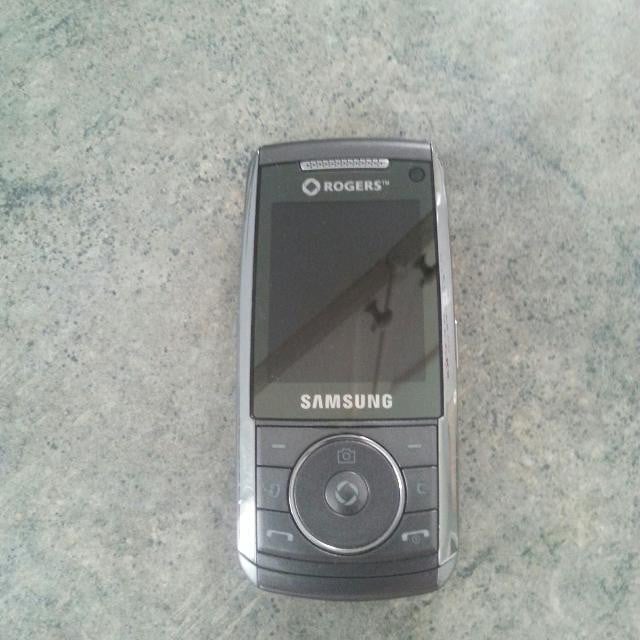
And here it is open
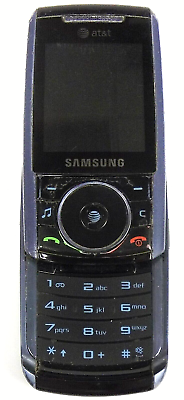
I still have my Sony Eriksson W580i, also thought it was the coolest thing.

Still works and holds a charge, pulled photos off of the memory card recently, cameras have gotten a lot better… Had the red one, have had some very brightly colored phones, my favourite being the bright yellow Nokia Lumia 1020

Had an amazing camera on it.Those are cool phones too, especially the red one! Yeah, the old digital cameras used to be junk. I have some old digital photos that look like they were taken on a potato.
I think my favourite thing about those old Lumias was the dedicated camera shutter. The 1020 even had a battery grip case so you could hold it more like a digital camera.
I fell in love with slide phones after watching Densha Otoko!
Pictures under glass: literally the only affordance anyone has now for device interaction
When the Vengabus has poorly shielded speakers.
Mine folds in half, so that’s kinda cool
Micheal Fisher’s kbin account.
Automatic watches and grandfather clocks. The way they kept track of time using only mechanical principles is crazy. How does my automatic watch recharge itself using only the movement from wearing it and keep accurate track of time. Grandfather clocks are cool because they’re so power efficient.
They are very cool indeed. And the fact that you can have a century old watch on your wrist and it’s just as useful as a modern one. In fact I’m wearing a watch from the 50s right now!
deleted by creator
Oh man…I have an entire ten page paper on the go about this topic and it just keeps growing. One day I’ll publish it in a blog or something, but for now it’s just me vomiting up my thoughts about mass market manufacturing and the loss of zeitgeist.
The examples that I always use are a) Camera Lenses, b) Typewriters, and c) watches.
Mechanical things age individually, developing a sort of Kami, or personality of their own. Camera lenses wear out differently, develop lens bokehs that are unique. Their apertures breath differently as they age No two old mechanical camera lenses are quite the same. Similarly to typewriters; usage creates individual characteristics, so much so that law enforcement can pinpoint a particular typewriter used in a ransom note.
It’s something that we’ve lost in a mass produced world. And to me, that’s a loss of unimaginable proportions.
Consider a pocket watch from the civil war, passed down from generation to generation because it was special both in craftsmanship and in connotation. Who the hell is passing their Apple Watch down from generation to generation? No one…because it’s just plastic and metal junk in two years. Or buying a table from Ikea versus buying one made bespoke by your neighbour down the street who wood works in his garage. Which of those is worthy of being an heirloom?
If our things are in part what informs the future of our role in the zeitgeist, what do we have except for mounds of plastic scrap.
Pop up headlights! Way cooler that way. I’ve heard a couple reasons given for why they stopped being a thing, but one of them is that they were considered too unsafe for pedestrians-
Which is a fucking crazy though when you consider what we now blindly accept in automotive design with respect to pedestrian safety 😅
I MISS CLEAR COMPUTERS >:(
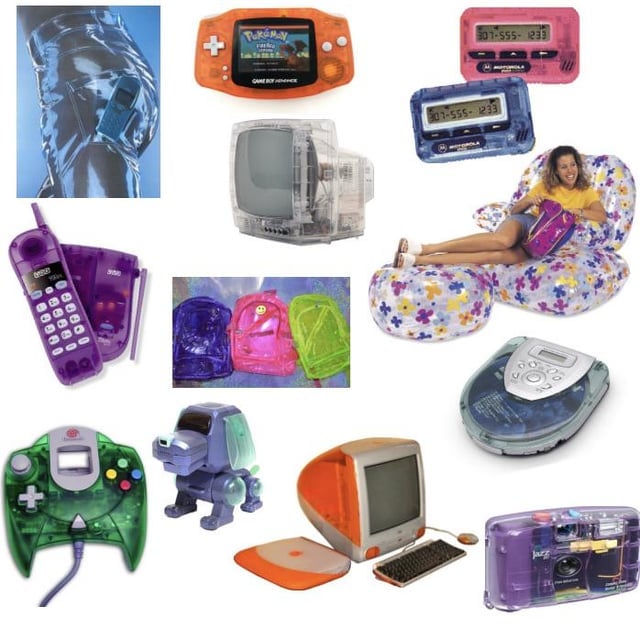
I mean LOOK AT IT it’s so much cooler than just a box!
The SteamDeck community has been cooking with some clear cases which I would buy if I didn’t have to risk breaking my beloved $500 indie machine.
The internet?
Web 1.0 and even before was way cooler than this corpo bullshit web we have now.
Any mechanical regulation process that used to be handled by actual machine parts. Think of the centrifugal governor, this beautiful and elegant mechanical device just for regulating the speed of a steam engine. Sure, a computer chip could do it a lot better today, and we’re not even building steam engines quite like those anymore. But still, mechanically controlled things are just genuinely a lot cooler.
Or hell, even for computing, take a look at the elaborate mechanical computers that were used to calculate firing solutions on old battleships. Again, silicon computers perform objectively better in nearly every way, but there’s something objectively cool about solving an set of equations on an elaborate arrangement of clockwork.
The idea of punch card programming blows my mind.
He’s not talking about punch card programming, that’s way more advanced and requires a Turing machine, what he’s talking about is computers as the term was using before what you would think as a computer existed.
The example in the video is for the computer on a cannon in a battleship. If there wasn’t a computer you would need to adjust the angle and height of the cannon, but that’s not something a human can know, what humans can know is angle to the ship and the distance to it, so instead you put two inputs where a human inputs that and you translate that into angle/height. Now those two would be very straightforward, essentially you just rename the height crank to distance. But this computer is a lot more complex, because wind, speed, etc can affect the shoot, so you have cranks for all of that, and internally they combine into a final output of angle/height to the cannon.
That’s cool, but punch card programming blows my mind.
To add, there is something about those old 40s and 50s era technical films like you linked that is just so… I don’t what exactly it is, but I find them fascinating and genuinely informative, even though they are explaining tech that is decades obsolete.
It’s pretty awesome that they are still available 70+ years later in excellent quality!
Someone showed me a record turntable with what must have been a centrifugal governor! What an ingenious device. (I got the impression from him this was unusual for a turntable, at least…)
I was under the impression that all wind-up turntables (I.e.: from the shellac records and steel needles and mechanical reproducers era) were using mechanical governors
Maybe I’m wrong though.
Oh I know little to nothing about turntables, so you’re probably right :-)
H model C-130s, the ones with the 4 square blade props? The engines and props are mechanically governed. There are electronic corrections applied, but the core of the systems are purely mechanical. Still flying.
Source: former flight engineer on them.
Centrifugal governors are possibly one of the origins of the phrase “balls out” or “balls to the wall” (although many say “balls to the wall” has to do with the ball-shaped handles on old aircraft throttle levers)
Also somewhat similar to governors are centrifugal switches, which are used in just about anything with an electric motor to disconnect the motor from a capacitor which gives the motor a little extra juice to get it going (I like this video for an explanation of how they work)
I didn’t know that was a thing. Thanks! I’m honestly surprised some MBA bean counter hasn’t replaced those with a chip of some sort by now. Really cool!
Home stereo systems. As a kid I remained enthralled by the metal face and the heavily tactile buttons and switches and knobs. You felt a delicious variety of feedbacks for every action you took. I honestly think we really lost something special when tactility left technology. It was so satisfying to just use.
Bicycle shifters.
The first iteration that could be operated without stopping was the Campagnolo Cambio Corsa.
To shift, you had to reach behind you, where there were 2 levers.The first one loosened the rear axle so it could move freely back and forth in the dropouts.
The second one had an eyelet you could use to move the chain sideways.
You put the chain on a different cog, and the rear wheel jumped forward or back due to the changed chain length.
Then you tightened the rear axle again.It’s terrifyingly beautiful:

To make sure I understand, you reached back and grabbed those levers while pedaling and riding the bike?
How many people lost fingers by sticking them into the spokes, I wonder?
Yes.
This sounds like a gadget specifically designed to make people fall off their bikes and break their bones.
… Cool.
Honestly those are terrifying. I can’t imagine doing any of that whilst on the move.
Hi there
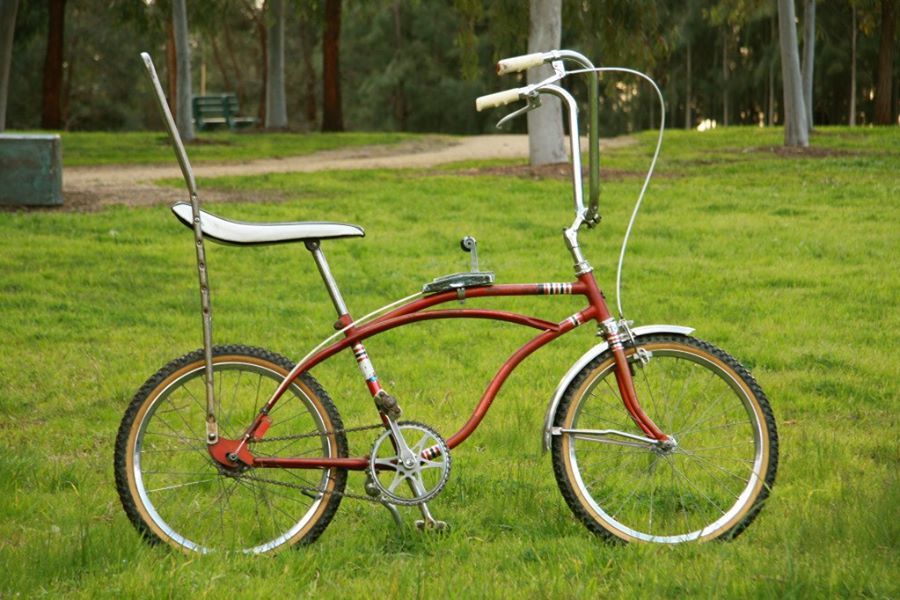
The fuck!





















